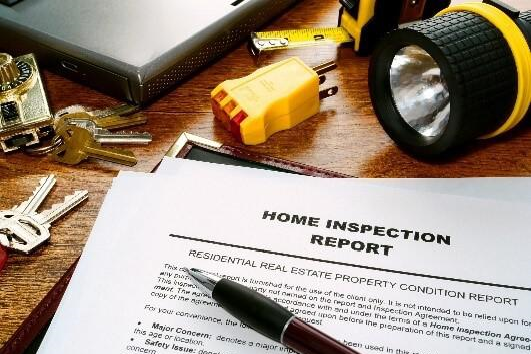Home Inspection Tips To Help You Close On Your Loan
Home Inspection Tips is essential to help prospective buyers with their homes. The home inspection is essential to selling your house. A good home inspection will give you an honest and non-biased look at what your house might cost you in repairs and upkeep costs in the near future. This will allow you to have an accurate price in mind for selling your house. Allowing the real estate agent to prepare a Home Inspection Report and placing it in the proper places on the sales contract will show the seller that he was informed as to the condition of their property. Allowing the real estate agent to prepare these documents without proper knowledge of Home Inspection Safety guidelines and Home Inspection standards will make a bad home inspection report.

Before you get started with Home Inspection, check with your county clerk to find out what permits you will need and what fees they charge. Also find out if your state requires Home Inspection or not. Some states don’t require inspections for newly constructed homes. Other states require inspections on newly built homes.
Home Inspection is the process of evaluating a home’s mechanical systems, structural components and overall condition based on visual observations. Home inspectors do not conduct physical evaluations, but can provide valuable information by describing the condition of a property through pictures and measurements. Home Inspectors can provide valuable information to the seller by providing information about any issues that could affect their ability to sell a house.
Make sure the home inspection is performed by a licensed and insured Home Inspector. It doesn’t hurt to try to negotiate with a real estate agent to get one of them to perform the
inspection. However, in my opinion, it is usually a better idea to get one of your own. You will get one of the most thorough Home Inspection reports ever performed, and you will be able to review it at a later time. Most home inspectors report their findings in writing to the client, and this is often a good indication of what the problem was. Be sure to ask what the specific problems were.
If you do decide to use a real estate agent to perform the home inspection, make sure you are comfortable with them and that they are bonded and insured. Most states require bonding and insurance, so ask your real estate agent what kind of experience they have had to make determinations about repairs. It’s important that they are independent and not affiliated with the Realtor.
Another Home Inspection Tip is to ask the real estate agent for referrals and references. Realtors are used to this, so it shouldn’t be a big issue. They will be happy to give you references from satisfied customers, or at least satisfied clients who they have already done inspections for in the past. Make sure to ask if they are familiar with the general nature of the job they do. The real estate agent should have some general ideas of what type of repairs would be appropriate to fix any issues you are concerned about.
In addition to a Home Inspection Tip, you should also be prepared to pay the real estate agent for their assistance. Home inspections can be expensive and it helps the seller to save money if they have an inspection performed and are able to discuss those areas that would need more attention. Most agents will try to negotiate additional money with you to close on your loan.
Once the home inspection is completed, there might be things that need to be fixed. Before closing, you will want to negotiate with the seller on those items and get them signed off on the final contract. Make sure that you keep the contract open for future negotiations and that you are prepared to walk away if things don’t seem to be working out. The home inspector should go over the repairs again with the seller and have them sign off. There might need to be some background work done before closing to include the fact that there might be hidden damages or problems that need to be taken care of before the new owner takes possession.